DSc. Prof. Evgeny Pashentsev, leading researcher at the Institute of Contemporary International Studies of the Diplomatic Academy of the Ministry of Foreign Affairs of the Russian Federation, director of the International Centre for Social and Political Studies and Consulting (ICSPSC), coordinator of the GlobalStratCom international strategic studies associations project, the Russian – Latin American Strategic Studies Association (RLASSA), European-Russian Communication Management Network (EU-RU-CM Network), Dr. Olga Polunina, a researcher at the ICSPSC,Vitali Ramanouski, the doctoral student at the Diplomatic Academy took part in the the European Conference on the Impact of AI and Robotics (ECIAIR) in Oxford, later Prof. Pashentsev was a guest-lecturer at Edinburgh University and Kingston University, also visiting Glasgow University and London University. Prof. Darya Bazarkina and MA researcher at the ICSPSC interviewed Prof. Evgeny Pashentsev and Dr. Olga Polunina and presented the following summary of the trip and the post-trip analysis of Russian specialists.
Oxford
On October 30 – November 1 Russian researchers contributed to the mini-track “Psychological Warfare, New Technologies and Political Instability in Contemporary World” at the European Conference on the Impact of AI and Robotics 31 October -1 November 2019 hosted by EM-Normandie Business School, Oxford, UK.
The motivation to launch ECIAIR came about as a result of the maturing of artificial intelligence and robotics, particularly of the cognitive computing kind, which is producing an unprecedented revolution in the role of work and professionals in society. So this Conference aims to focus not so much on the technology itself, but rather its consequence on knowledge work and society. The organizers would like to see the ECIAIR develop into a key forum where natural scientists, social scientists and philosophers come together to envision the future of society in the context of advanced AI and Robotics, so as to keep progress in balance with the meaning of life and the destiny of humankind – the stakes are much to high to do otherwise. So we also welcome contributions from philosophers reflecting on the ethical dimension of AI and the balance between science and conscience.
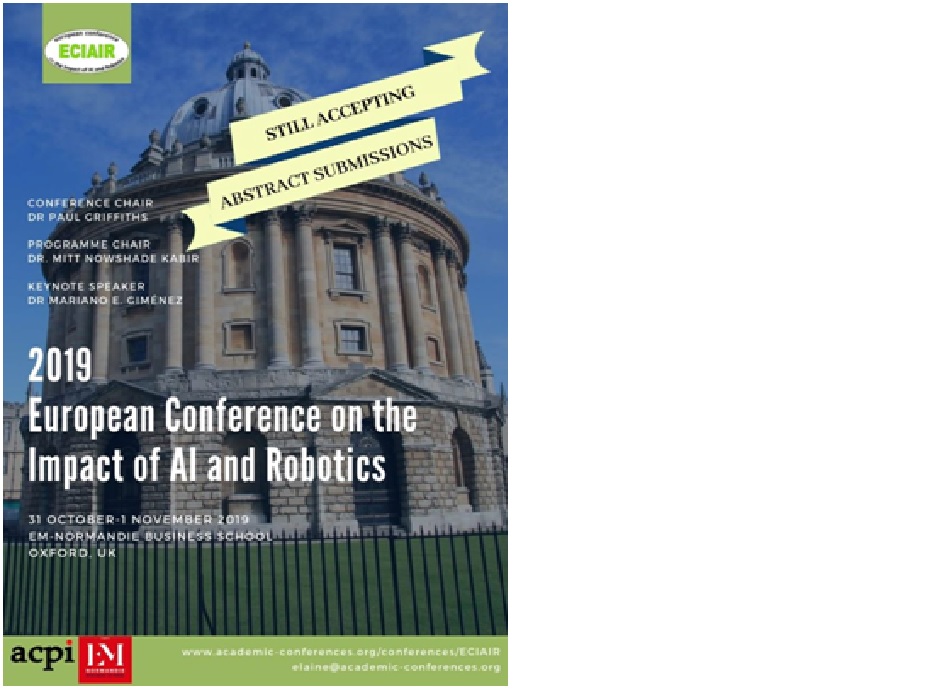
The Conference Chair was Paul Griffiths from EM-Normandie Business School and the Programme Chair was Mitt Nowshade Kabir, from Trouvus, Canada. The opening keynote presentation was given by Dr Mariano E. Giménez, from the University of Strasbourg, France on the topic of Hybrid Operating Rooms and Image-Guided Surgery, the way to Automation. His presentation was followed by an afternoon screening of the Netflix Film “The Great Hacked” followed by a Q&A. The second day of the conference will open with an address by Dr. Mitt Nowshade Kabir, who talked about Artificial General Intelligence, Consciousness and the Future of AI. The conference closed on with a Panel of Philosophers: What limits should humans set on Artificial Intelligence?
With an initial submission of 104 abstracts, after the double blind, peer review process there are 44 Academic research papers, 4 PhD research papers, 1 Masters Research papers, 4 non-academic papers and 4 work-in progress papers published in these Conference Proceedings. These papers represent research from Australia, Belarus, Canada, China, Denmark, Finland, France, Germany, India, Iran, Iraq, Italy, Japan, Lithuania,Netherlands, Norway, Poland, Portugal, Romania, Russia, South Africa, Spain, Sweden, Taiwan, Thailand, UAE, UK and USA[1].
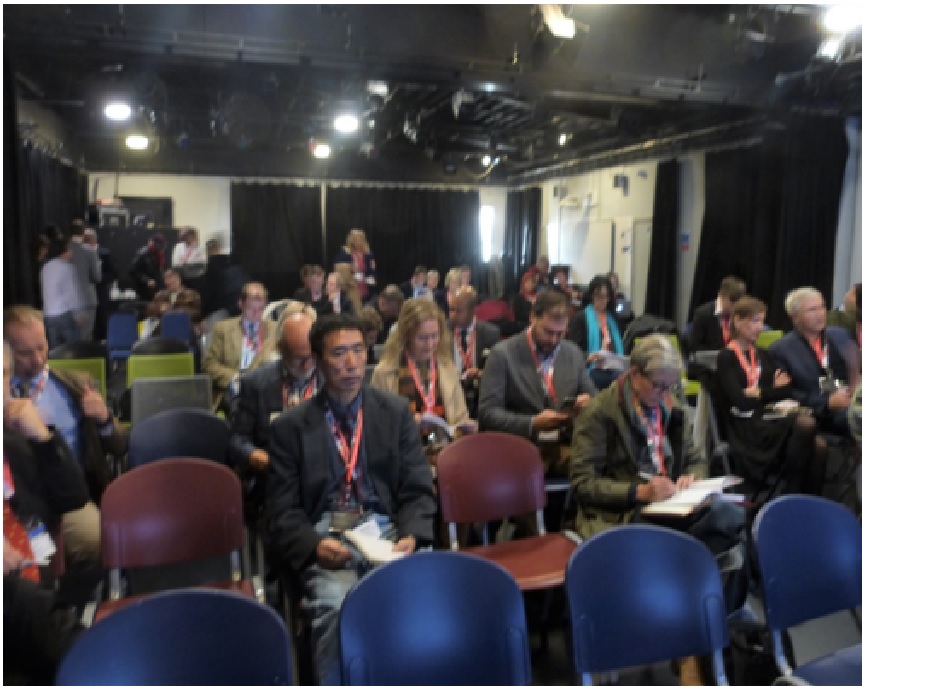
At the ECIAIR plenary session, 31 October 2019
The hosting institution EM Normandie is a celebrated Management School that operates 5 campuses, in France (Le Havre, Caen and Paris) and abroad (Oxford and Dublin). Accredited by prestige international agencies such as AACSB, EQUIS and EPAS, EM Normandie has guaranteed the excellence of all its training programmes, faculty members, academic and professional partnerships in France and abroad for 147 years.

Some mini-tracks at ECIAIR 2019
One of the mini-tracks at ECIAIR was about on the Malicious Use of Artificial Intelligence: New Challenges for Democratic Institutions and Political Stability. The mini-track was chaired by Prof. Evgeny N. Pashentsev. The reasons for the organization of such a mini-track were rather evident.
The possibilities for artificial intelligence (AI) are growing at an unprecedented rate. AI has many areas of social utility: from machine translation and medical diagnostics to electronic trading and education. Less investigated are the areas and types of the malicious use of artificial intelligence (MUAI), which should be given further attention. It is impossible to exclude global, disastrous, rapid and latent consequences of MUAI. MUAI implies the possibility of using multiple weaknesses of individual and human civilization as a whole. For instance, AI could integrate with a nuclear or biological attack, and even improve its effectiveness. However, AI could similarly be used as a most efficient defence instrument. The international experience in monitoring online content and predictive analytics indicates the possibility of creating an AI system, based on the information disseminated in the digital environment that could not only indicate threats to information and psychological security in a timely manner but also offer scenarios of counteraction (including counteracting offensive weapons’ systems).
Suggested topics of the mini-track included, but were not limited to:
– Dynamic social and political systems and the malicious use of AI
– AI in civil and military conflicts
– AI enhancing terrorist threats and counter-terrorist response
– Role and practice of the malicious use of AI in contemporary geopolitical confrontation
– Predictive analytics and prognostic weapons
– Risk scenarios of the malicious use of AI
– Spoofing, data extraction, and poisoning of training data to exploit vulnerabilities under the malicious use of AI
– Artificial Intelligence Online Reputation Management (ORM)
– AI in Lethal Autonomous Systems (LAWs):
– Deepfakes and their possible influence on political warfare
– Amplification and political agenda setting
– Emotional AI in political warfare
– Damage reputation through bot activities
– Synthetic information products containing software modules that introduce targeted audiences into depression and/ or encourage people to perform strictly defined actions
– Challenges of the malicious use of AI
– Ways and means to neutralize targeted information and psychological destabilization of democratic institutions using AI.
It is interesting to note that in Oxford is located a Future of Humanity Institute, a multidisciplinary research institute at the University of Oxford. Academics at FHI bring the tools of mathematics, philosophy and social sciences to bear on big-picture questions about humanity and its prospects. The Institute is led by Founding Director Professor Nick Bostrom. FHI’s big picture research focuses on the planet -term consequences of human actions today, and the complicated dynamics that are bound to shape our future in significant ways. A key aspect to this is the study of existential risks – events that endanger the survival of Earth-originating, intelligent life or that threatens to drastically and permanently destroy our potential for realising a valuable future. FHI focus within this area lies in the impact of future technology capabilities and impacts (including the possibility and impact of Artificial General Intelligence or ‘Superintelligence’, existential risk assessment, population ethics, human enhancement ethics, game theory. In 2018 was published the report entitled The Malicious Use of Artificial Intelligence: Forecasting, Prevention, and Mitigation. It t was written by 26 authors from 14 institutions, spanning academia, civil society, and industry. The report builds on a 2 day workshop held in Oxford, UK, in February 2017.
At ECIAIR 2019 Russian researchers contributed to the analysis of the MUAI from the point of view of threats to the international psychological security and political stability.
Prof. Evgeny Pashentsev in his paper Malicious Use of Artificial Intelligence: Challenging International Psychological Security analysed new threats to international psychological security (IPS) posed by the malicious use of artificial intelligence (MUAI) by aggressive state and non-state actors in international relations. Compared with the positive applications of artificial intelligence (AI), MUAI as related to security threats is a much less-studied area. The speaker defined and established the IPS domain. According to Evgeny Pashentsev it possible to define IPS as protection of the system of international relations from negative psychological influences associated with various factors of international development. The latter include targeted efforts by various state, non-state and supranational actors to achieve partial/complete, local/global, short-term/long-term, and latent/open destabilization of the international situation in order to gain competitive advantages, even through the physical elimination of the enemy.
Prof. Pashentsev proposed MUAI classifications based on implementability, territorial coverage, degree of damage, and speed and forms of propagation. The author laid out current and prospective MUAI-based threats to IPS: the creation of ‘deepfakes’, “fake faces”, the damage to reputation through bot activities, the setting and amplification of a manipulative agenda, the use of prognostic weapons, etc. Factors that complicate the minimisation of damage caused by state and non-state actors to IPS from MUAI are singled out. This study confirms that MUAI elevates threats to IPS to a qualitatively new level which requires an adequate assessment and reaction from society.
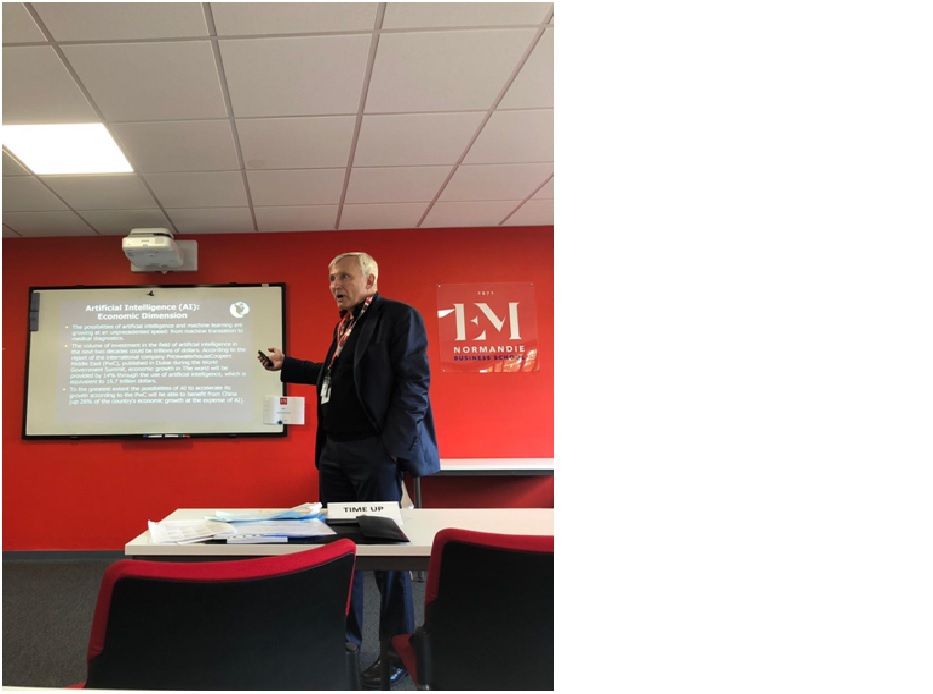
Prof. Evgeny Pashentsev
According to Evgeny Pashentsev there are concerns associated with several obvious circumstances.
Firstly, AI is not only a dual-use technology that can be used for both peaceful and military purposes. AI can, unlike other creations of the human mind, have both a positive-creative and a destructive impact on all aspects of human activity. Even incomplete imitation of human activity and partial transfer of the control functions to narrow AI make it a potential threat in the hands of intruders in all spheres of life.
Secondly, the various sponsors of extremist reactionary organisations and terrorist groups, will logically try to use the unstable dynamic equilibrium that human society enters (see more detailed: Pashentsev, 2019) not through the evil will of individuals, social groups, or classes, but through the objective laws of social development. This in itself is dangerous. However, it is precisely because of the unstable dynamic equilibrium that small antisocial technically advanced organisations may, in a critical social environment, act more often at their own risk, and if they have AI capabilities, the consequences of such “autonomy” may become an additional threat to international security, including IPS.
Thirdly, MUAI as a set of coordinated new or updated tools in HTSPW needs a coordinated response from socially oriented states, academia (combined efforts of researchers in different fields), and civil society. They need to provide the following: a list of current and future threats to the public consciousness through AI, an analysis of national practices in the application of AI in terms of the direct or indirect psychological effects on the political system for the purpose of destabilisation, an evaluation of risks of MUAI against IPS by non-state actors with egoistic antisocial goals, clarification of the role of predictive analytics and prognostic weapons using AI in antisocial goals, and an analysis of the ways and means of neutralising the purposeful psychological destabilisation of political systems using AI.As has often been the case throughout history, a means of attack can be turned into an equally effective means of defense. Much will depend on how fast AI systems are adapted to protect the public consciousness.
The determination, analysis, evaluation, and clarification of MUAI threats to IPS will make it possible to formulate concrete recommendations in this area. The establishment of an international research centre for a better understanding and counteraction to these threats is also desirable.
Not only AI but the whole range of new technologies require qualitative changes in human society, both at the level of state and public institutions and at the level of human individuals. Individuals themselves need qualitative changes in their mental and physical abilities, a new level of ethical norms, and social responsibility in order to use qualitatively new opportunities, minimise qualitatively new risks, and ensure the progressive development of society. The alternative to such changes is the self-destruction (rapid or relatively gradual) of humanity and the elimination of the possibility of the start of a new progressive civilisation, respecting its roots, but going forward in its development. Greater positive certainty, meaningfulness, and consistency in such a move into the future is the best medicine for the MUAI against IPS. Any uncertainty, hesitation, postponement of overdue decisions, and, most importantly, lack of strategic vision and appropriate action will play into the hands of a social groups and lead to the rise of global instability.
In her paper Is Artificial Intelligence Disruptive? Dr. Olga Polunina analyzed the risks and hazards of psychological security within the framework of the development of artificial intelligence as one of the possible causes of controlled chaos in the modern world. According to the speaker the social and political basis of many managerial methods are being changed from the point of view of their architecture because of information and communication technologies. In general global information data bases, intellectual analytical systems and information technologies force specialists to deal with absolutely new kinds of decision making and prognostics either in social or political management. The genesis of the main areas of problem management and prognostics is connected as a rule with strict time limits and available media solutions.
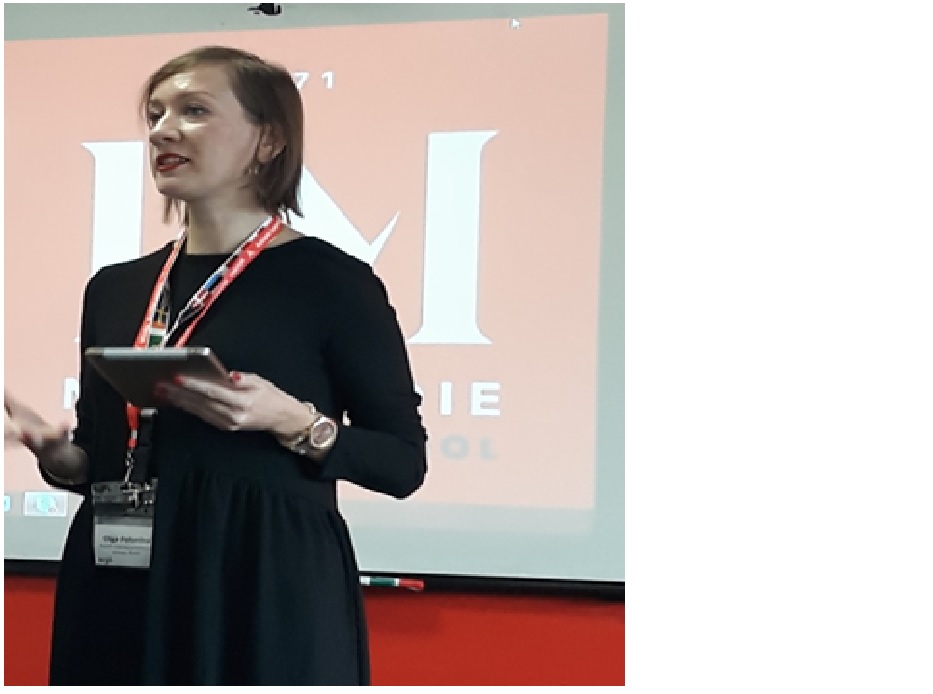
Dr. Olga Polunina
The paper also considers the problem of the nonstructural nature of modern data and the way that creates an additional challenge for the functioning of various systems. Data hygiene and a new philosophy of data structure are important elements of future advances and far-sighted strategies for most organizations. Big possibilities create big problems. One of them is inequality, but not only in the economic sense, but in terms of inequality in the access to information data, to control information data. It actually means that the advantages of the digital revolution, the Fourth Industrial revolution and artificial intelligence development are going to concentrate in the hands of an extremely small percentage of the population. This is dangerous for social and political stability. Dr. Polunina concluded that under such conditions, the main way to maintain some balance is mutual development, co-operation and dialogue at least in the scientific sphere.
Vitali Ramanouski dedicated his paper to the theme: Possible Use of AI Technologies in Counter-terrorism Responses by Iraqi Security Establishment. Interrelated character of security threats and deep social transformations in the Iraqi society complicate counter-terrorism responses in the country. There is a significant risk of Jihadi revival in historical insurgent strongholds in Iraq. Islamic State (IS) network-based structure is becoming more distributed and decentralized; its cells are gaining more independence in decision-making. Numbers of active fighter and sleeping agents are expected to increase with the fighters returning from Syria and new recruits from vulnerable and intimidated populations. Complexity of the environment and low predictability of its development trajectories require a system-based and holistic approach to the decision-making from the national and international counter-terrorism structure operating in Iraq. Use of AI technologies by the Iraqi security institutions might contribute to the formulation of the decision-making policies based on a non-linear vision towards the security file in the country and make implementation of the current counter-terrorism strategies more effective. Though at present immature, AI technologies, not subject to cognitive specifics of human decision-making, can potentially become an invaluable tool in identifying key vulnerabilities of the enemies and changing the power balance on the battlefield. In the case study the author examines the possible use of AI technologies in counter-terrorism efforts of the Iraqi law enforcement establishment and ways of shifting power balance towards it in the fight against terrorist groups in Iraq.
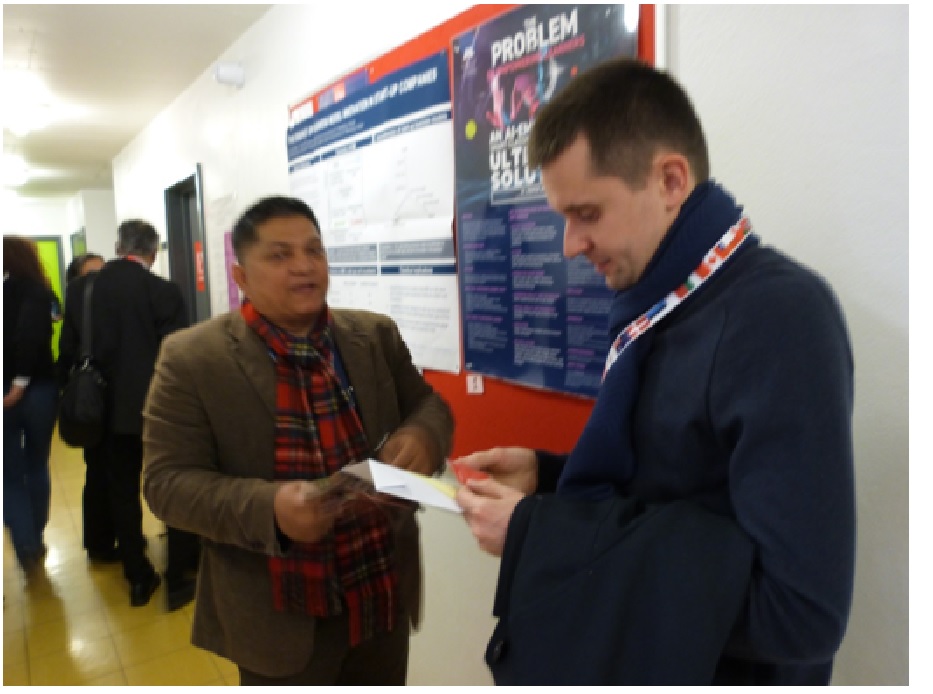
Mr. Vitali Ramanouski on the sidelines of the conference
Interrelated character of security threats and deep social transformations in the Iraqi society complicate design and effective implementation of CT and social engineering strategies in Iraq. Complexity of the environment and low predictability of its development trajectories require a system-based and holistic approach to the decision-making. Use of advanced AI technologies by the Iraqi security institutions might contribute to the formulation of the decision-making policies based on a non-linear vision towards the security in the country and make implementation of the current CT strategies more effective.
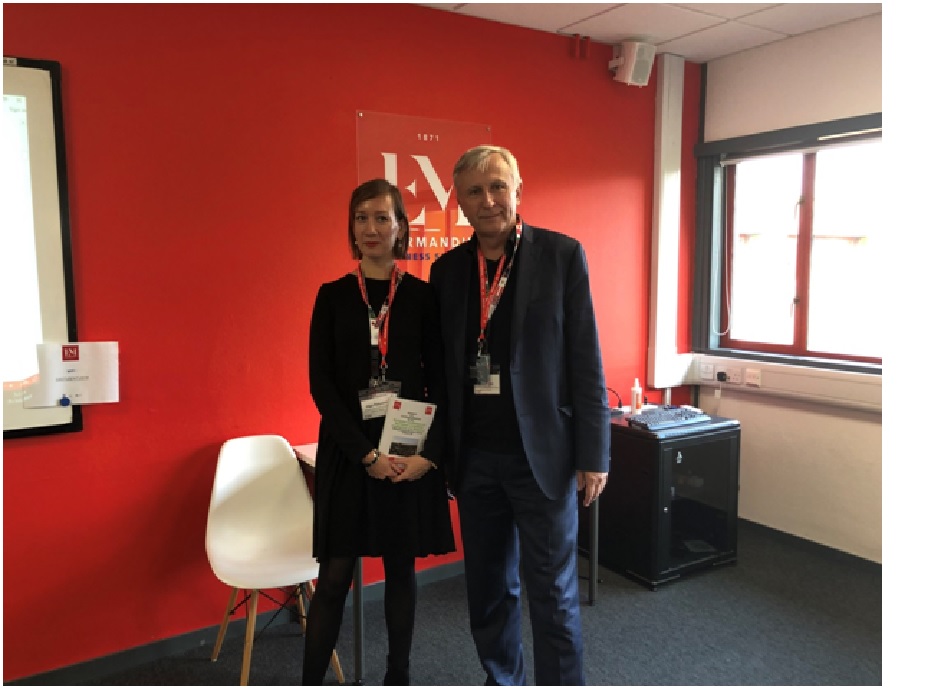
Dr. Olga Polunina and Prof. Evgeny Pashentsev with the ECIAIR conference proceedings edition
May be at ECIAIR 2020 at the Instituto Universitário de Lisboa (ISCTE-IUL), October 22-23 the similar mini-track will be in the conference programme.
It should be noted the perfect organization of the conference itself and friendly communication on the conference sidelines determined its success. Academic Conferences and Publishing have been supporting the Academic Community for over 20 years and manage a range of Conferences Worldwide and success of ECIAIR is also their success.
After their stay in Oxford Prof. Evgeny Pashentsev and Dr. OlgaPolunina visited two universities in Scotland. First of all they paid a visit to the University of Glasgow.
Glasgow
In Britain, Russian researchers witnessed in different circumstances discussions on Brexit, including mass actions of its supporters and opponents. Particularly noteworthy in this regard was a brief visit to the University of Glasgow. On their way to the university Evgeny Pashentsev and Olga Polunina had to pass a mass action of opponents of Brexit. Later it became known that more than 20 thousand people took part in it.

Meeting in Glasgow of thousands of people against Brexit
According to the information from the site of the University of Glasgow the Glasgow scientists lead the way in understanding how the brain processes visual stimuli such as facial expressions and scenes. This research is critical to the development of a truly humanoid-like robot. To make a robot that can recognise a facial expression with the same speed and intuitiveness as a human, you need to understand the incredibly complex cognitive processes that underpin abilities like perception and recognition. Using the idea of the brain as an information-processing machine, our neuroscientists are aiming to decode these processes. Ultimately, they want this information to be rendered in a way that can be implanted back into a robot. n the field of artificial intelligence, it’s far easier to create a machine to beat you at chess than it is to create one to recognise your look of disappointment on your face when you lose. The theory, Moravec’s paradox, goes that the longer a cognitive process has existed in evolutionary terms, the more sophisticated and refined it has become, and its complexities become less apparent to ourselves and therefore harder to reproduce.” Given the enormity of the challenge, Glasgow collaborates with many world-leading institutions that are also focused on understanding and ultimately replicating the complexity of the mind. “If robots of science fiction are to become reality,” says Professor Schyns, “they will need to be much more aware of their surroundings and be able to adapt to situations accordingly. This kind of deep understanding is a very old goal of artificial intelligence“[2] .
Scotland is to have its own £15.8m artificial intelligence health research centre, which promises to enable better patient diagnosis, treatment and outcomes. The Industrial Centre for Artificial Intelligence Research in Digital Diagnostics, to be known as iCAIRD, brings together a pan-Scotland collaboration of 15 partners from across academia, the NHS, and industry. Centred at the University of Glasgow’s Clinical Innovation Zone at the Queen Elizabeth University Hospital, iCAIRD bring together teams across Scotland – in Aberdeen, St Andrews and Edinburgh – to enable joined-up academic and commercial technology development, alongside academic researchers locally and nationally.

The University of Glasgow
The Centre for Russian, Central and East European Studies (CRCEES) develops its activities at the University of Glasgow .CRCEES is an inter-institutional Centre of Excellence in Russian, Central and East European Language-Based Area Studies. CRCEES is a consortium of UK universities led by the University of Glasgow and composed of the Universities of: Aberdeen, Durham, Edinburgh, Newcastle, Nottingham, St. Andrews and Strathclyde. Established in 2006, the Centre for Russian, Central and East European Studies (CRCEES) was previously funded by UK’s Arts and Humanities Research Council; Economic and Social Research Council; the British Academy; the Scottish Funding Council; and the Higher Education Funding Council for England. CRCEES is led by staff in Central & East European Studies, School of Social and Political Sciences at the University of Glasgow[3].
There exist not bad opportunities for further development of cooperation between Russian researchers and the University of Glasgow specialists in multidisciplinary research.
Edinburgh
Prof. Evgeny Pashentsev was invited as a guest speaker to the Department of Politics and International Relations at the School of Social and Political Science, University of Edinburgh. There he delivered a lecture titled Strategic Communication in EU-Russia Relations: Tensions, Challenges and Opportunities on November 4, 2019. Members of academic staff and students took part in Prof. Pashentsev’s lecture. Among them was Prof. Luke Marcha Head of Politics and International Relations Department; Deputy Director of the Princess Dashkova Russian Centre and Dr. Katarzyna Kaczmarska, Lecturer in Politics and International Relations who organized a lecture.
The University of Edinburgh

The School of Social and Political Science is one of the largest schools in the College of Arts, Humanities and Social Sciences at the University of Edinburgh and Politics and International Relations at Edinburgh is in turn one of the largest and most competitive subject areas in the University, home to over 600 top undergraduates and 100 international postgraduate students every year. The alumni include government ministers, members of parliament, policy analysts, broadcasters, business leaders, teachers, and an increasing number of social entrepreneurs.
In his lecture Prof. Pashentsev aimed to identify the main content and features of strategic communication, paying special attention to its organization, efficiency and ethical dimensions. The challenges for strategic communication of the European Union (EU) and Russia were analyzed. According to the speaker:
Firstly, strategic communication is not only communication by itself but also communication through state deeds.
Secondly, it is incorrect to consider strategic communication primarily a military tool; it is a strategic public administration tool (with a military dimension as well, of course).
Thirdly, it is necessary to confront not only a wrong strategic communication by itself, but also a state-run machine – if it supports itself utilizing a wrong means of development. This often involves the use reactionary social groups. A reactionary state can follow on a weak strategic communication and it is not bad at all for progressive forces. In the case where a reactionary, especially aggressive state follows efficient strategic communication, it may be extremely dangerous for the whole world if we are speaking about a rather powerful state or international union of states.
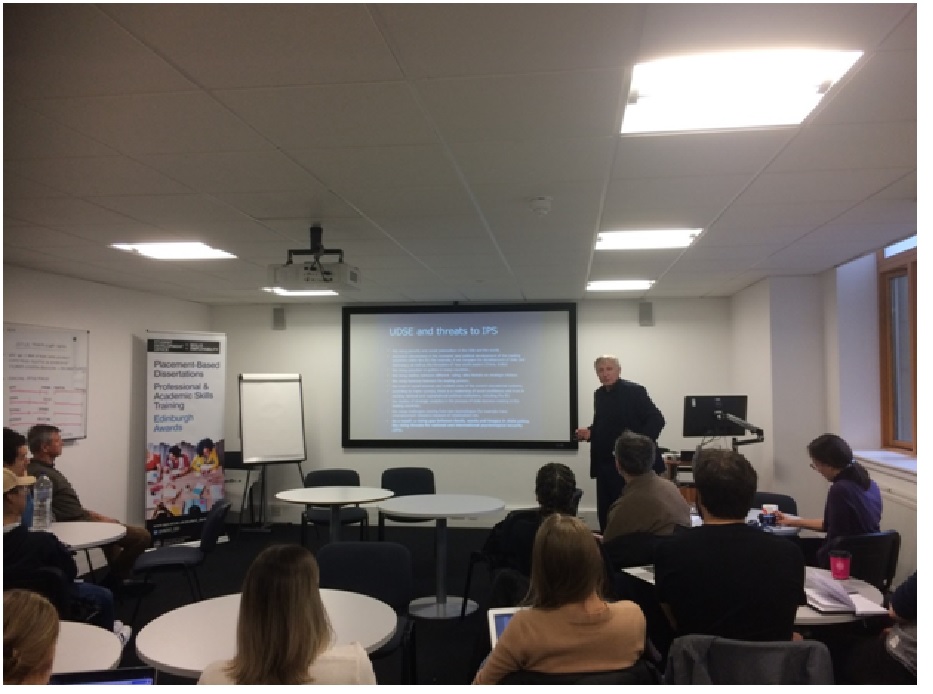
Prof. Evgeny Pashentsev’s lecture at the School of Social and Political Science, University of Edinburgh
Fourthly, the progressive forces can’t underestimate the role of efficient strategic communication as a tool for progressive changes. A progressive strategy without efficient means, based on advanced technologies, is objectively doomed to death. In a state, all its main institutions, at the least, are responsible in this or that way for synchronization of deeds, words and images.
Prof. Pashentsev stressed that there are serious grounds for imaging further degradation of EU-Russia relations – even up to the highly undesirable and dangerous point of collapse and the use of military means. However, at the same time, there are also opportunities to increase trust and, over time, craft-friendly relations between states—not only in Europe but through the world. Of course, this will require radical changes in different countries, taking into account their national backgrounds, historical experience and shared realities and trends of the twenty-first century.
Omnipresent together with officially proclaimed and easy seen, official (open) strategic communication is a latent and real strategic communication of the same state or non-state actor (which is very important to detect, analyze, understand and react). For example, Hitler leadership, officially addressing to Russians in occupied territories and international publics, declared the liberation war against Bolsheviks in defense of “Western Civilization” but, in the GeneralplanOst, was proclaimed the Nazi government’s plan for the genocide of the Slavs.
As the practice of the Cold War of the twentieth century has shown, it has been easier and faster to reduce one’s security by launching a large-scale nuclear arms race than to increase one’s security through long and difficult negotiations on nuclear weapons. It would be useful to remember this lesson of history for all those who are concerned about the immediate profits of the military-industrial complex (MIC), rather than the long-term interests of their nations. However, the mistakes of the past do not teach everyone.
Synchronization of deeds (qualitative renewal of strategic weapons, trade wars, sanctions policy, etc.), words (bellicose rhetoric) and the creation of the image of the enemy in the face of the other side due to the increasingly acute struggle for markets – all this is very similar to the situation on the eve of the World War I. The explosive conflict content of strategic communication is very clear. The reasons for this situation are quite objective, although the subjective factor, of course, plays a role too.
The speaker focuses on the changes in the global economy and geopolitics in the context of great shifts in technologies with special attention to artificial intelligence. The author characterizes the current unstable dynamic social equilibrium. The author also examines the level of adaptation of these new realities, via strategic communication, by the EU and Russia, who are both strategic actors of the current world order ready for future great challenges that promise to transform mankind more radically than has ever happened before.
The speaker came to the conclusion that there is a need to work out alternative development models of the entire human civilization, which requires cooperation between the peoples of the world, not their confrontation. Though respectful of the previous efforts to suggest an alternative development model, we have to admit that we cannot repeat 1789 or 1917, nor the people confine themselves to a number of limited reforms introduced from above. Russia does not claim that its way to a more harmonious future is the only one possible. There is also scope for principled disputes, fierce debates and political struggle. First and foremost, the nations have to cooperate to save global peace, to prevent WW3 and the role of the EU countries and Russia is great in this regard.
According to some specialists the best ten universities in the UK for a PhD in artificial intelligence or machine learning: Cambridge (‘Machine Intelligence’ Lab. Oxford (A2I or Visual Geometry and Edinburgh (any in IPAB)[4].
AI-X is a multidisciplinary and culturally inclusive research centre, which aims to explore the possible ways that artificial intelligence could develop and impact the world. It brings together thinkers and practitioners with those seeking to understand and shape AI’s influence towards positive outcomes for humanity. Based within the Edinburgh Futures Institute at the Edinburgh University, AI-X identifies emerging and foreseen challenges in the application of AI, through international cooperation and collaboration.
The objectives of the center are:
– To conduct world-leading research on the use and development of AI, including: responsible innovation, identification and minimisation of arising harms, promotion of data justice, and respect for human autonomy
– To develop critical education about dual use of data and AI, and training in responsible research and innovation.
– To lead strategic public, private and third sector engagement to ensure inclusive and co-created knowledge and understanding.
All that makes this center very prospective in research on ethical aspects of the use of AI, including the aspect of MUAI and IPS.
London
Prof Evgeny Pashentsev was invited by Dr. Damian M. Bielicki, Director of the Law & Technology Research Group to deliver a lecture on November 5, 2019 in the Department of Law at Kingston University London. The topic of his presentation was: Artificial Intelligence: Opportunities and Risks. The Law & Technology Research Group at Kingston University London, which organised this event brings together researchers, professionals, stakeholders and students, from legal and non-legal backgrounds, interested in the intersections between law and technology. It also organises events, including conference series, lectures and seminars on topics related to law and technology. The topic of artificial intelligence is one of the leading research topics within the Group.

Kingston University
Kingston University is rather active in AI studies. For example Kingston University experts are exploring how artificial intelligence could be trained to detect the early signs of oral cancer using a mobile phone app. Professors Sarah Barman and Paolo Remagnino have secured £146,000 for the two year Medical Research Council-funded project, which will see them work alongside experts from the University of Malaya and Cancer Research Malaysia. Kingston University researcher investigates how artificial intelligence can help composers create new music. Choosing Irish folk music for the study – due to its relatively well-defined structure and a wealth of available data – the AI system was taught more than 23,000 tunes using a text-based music notation format. This enabled it to generate new tunes by drawing upon the patterns and structures it has learned. Research by Dr. Oded Ben-Tal, senior lecturer in music technology at Kingston University, sought to discover how an artificial intelligence system could be used as a creative partner by musicians. The results were so impressive that some of the tunes will be performed live at a concert later this month as part of the project, according to Dr Oded Ben-Tal, senior lecturer in music technology at Kingston University.

Kingston University
In his lecture Prof. Pashentsev emphasized that possibilities of artificial intelligence and machine learning are growing at an unprecedented speed. These technologies have many extremely important areas of social utility: from machine translation to medical diagnostics. The speaker addressed only to such great consequences of AI development as:
– Intelligent automation
– Labour and capital augmentation
– Innovation diffusion
– Penetration in all spheres of production and everyday life
According to the speaker the next years and decades will bring immeasurably more opportunities for such applications. To support his point of view Prof. Pashentsev addressed to some reports which provide enough data on that point. Thus, according to the report of the international company PricewaterhouseCoopers Middle East (PwC), published in Dubai during the World Government Summit, 14% of economic growth in the world will be provided through the use of artificial intelligence, which is equivalent to $15.7 trillion contributed to the global economy in 2030, more than the current output of China and India combined. Of this, $6.6 trillion is likely to come from increased productivity and $9.1 trillion is likely to come from consumption-side effects. To the greatest extent the possibilities of AI to accelerate its growth according to the PwC will be able to benefit from China (up 26% of the country’s economic growth at the expense of AI).
These positive aspects of the use of artificial intelligence are given attention by research teams in different countries of the world as well as leading international organizations. According to a new report published by Allied Market Research, titled “Artificial intelligence market by technology and industry verticals: global opportunity analysis and industry forecast, 2018‒2025”, the artificial intelligence market accounted for more than $4 billion in 2016, and is expected to reach $169 billion by 2025. In 2017, China published its “Next generation artificial intelligence development plan”, which laid out plans to become the world leader in artificial intelligence, with a domestic AI industry worth almost $150 billion. Delivering on its strategy on artificial intelligence (AI) adopted in April 2018 the European Commission presented in December 2018 a coordinated plan prepared with member states to foster the development and use of AI in Europe. This plan proposes joint actions for closer and more efficient cooperation between member states, Norway, Switzerland and the Commission in four key areas: increasing investment, making more data available, fostering talent and ensuring trust. For the purpose of ensuring the accelerated development of artificial intelligence in the Russian Federation, as well as conducting scientific research in the field of artificial intelligence, the president of Russia Vladimir Putin signed a decree on the development of artificial intelligence in the Russian Federation.This document is Russia’s national strategy for the development of artificial intelligence (AI). The strategy sets out a number of short-term (to be completed by 2024) and medium-term (2030) qualitative goals designed to build Russia into a leading AI power.
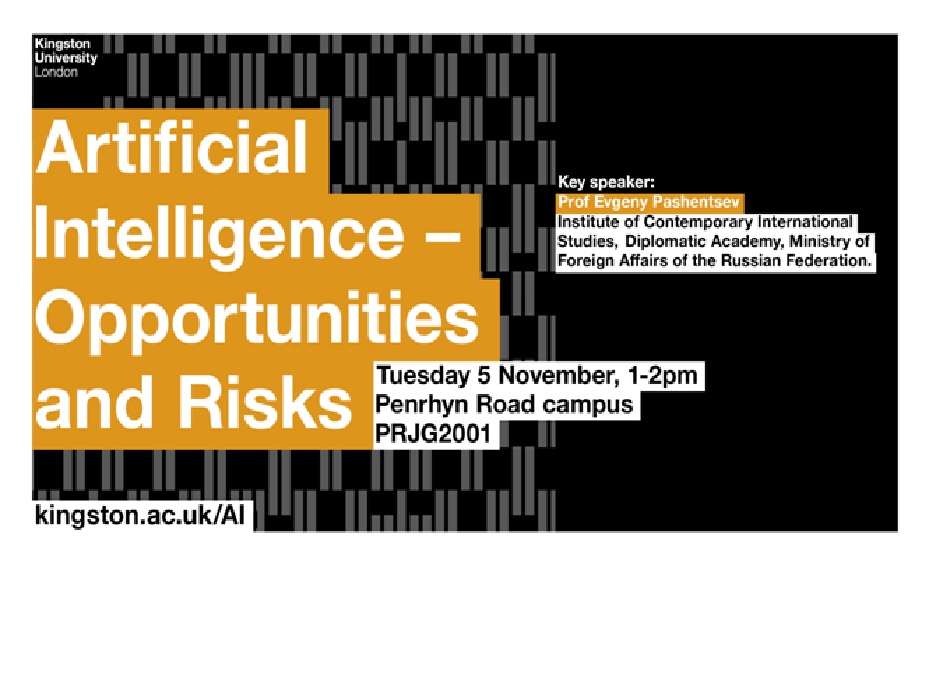
Because the benefits of AI and investments in the branch are much more well known than the risks of AI, especially the MUAI connected with the threats to IPS. According to Prof. Pashentsev Marxist Theory of Revolution, Tektology, Systems Theory, Action Theory, Punctuated Equilibrium Theory (PET) etc. are contributing today to the research of social dynamic systems. At the same time, insufficient attention is being paid to the comprehensive analysis of the issues of the unstable dynamic social equilibrium (UDSE), especially, in the context of random and targeted negative impacts in the field of strategic psychological warfare.
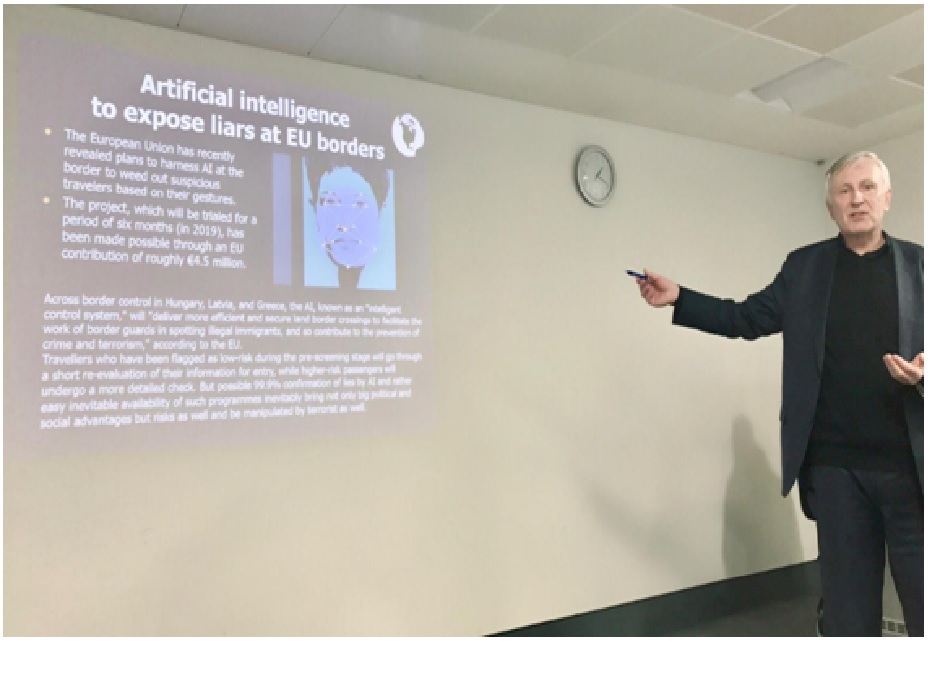
Prof. Evgeny Pashentsev’s lecture at Kingston University
Prof. Pashentsev underscored the following attributes of UDSE:
– the rising poverty and social polarization in the world;
– increased unevenness in the economic and political development of the leading countries
– the rising populism in politics in many countries ;
– the rising clashes between different ruling elite factions on strategic choices
– the rising tensions between the leading powers;
– the crisis in social sciences and evident crisis of the current educational systems;
– the decline of strategic analytics in the process of state decision making in the leading countries;
– according to many surveys, there is a weakening of social confidence and trust in existing national and supranational political institutions, including for example the EU
– the rising challenges coming from new technologies (for example mass unemployment may sharpen because of implementation of AI, robotization, etc.).
As a result: a rising gap between deeds, words and images in state policy, the rising threats for national and international psychological security (IPS) which could be reinforced in the consciousness of different target groups not only with the help of traditional propagandistic tools but through MUAI against political stability and IPS.
MUAI can allow hostile actors to be more successful than so far in:
– provoking a public reaction to a non-existent factor of national or international development in the interests of the customer of psychological impact. The target audience sees something that doesn’t really exist.
– presenting a false interpretation of the existing factor of national or international development and thus provoking the desired target reaction. The audience sees what exists, but in a false light.
– significantly and dangerously strengthening (weakening) public reaction to the real factor of national or international development. The audience sees what exists but reacts inadequately.
Next the speaker charecterized the current threats to IPS because of malicious use of Artificial Narrow Intelligence, the only type of AI which exists now. Prof. Pashentsev named many methods to attack public consciousness through MUAI: formation of the news agenda with AI, AI-driven fakes: deep-fakes, fake videos, fake sounds, fake faces, fake texts, fake things, target transformation of visual images, laying “poisoned data” in AI with the purpose to poisoning the consciousness of target groups, exploitation of behavioral data, predictive analytics used as prognostic weapons weapon etc. AI can be helpful not only in MUAI but in the countermeasures against deception technologies.
During his lecture Prof. Pashentsev mentioned the recent publication of the book under his editorship: Strategic Communication in EU-Russia Relations: Tensions, Challenges and Opportunities. Palgrave Macmillan. 2020 (the eBook is already available on the publisher’s site). With his chapter focuses on the changes in the global economy and geopolitics in the context of great shifts in technologies with special attention to artificial intelligence, robotics, cyborgization and human genetic engineering.
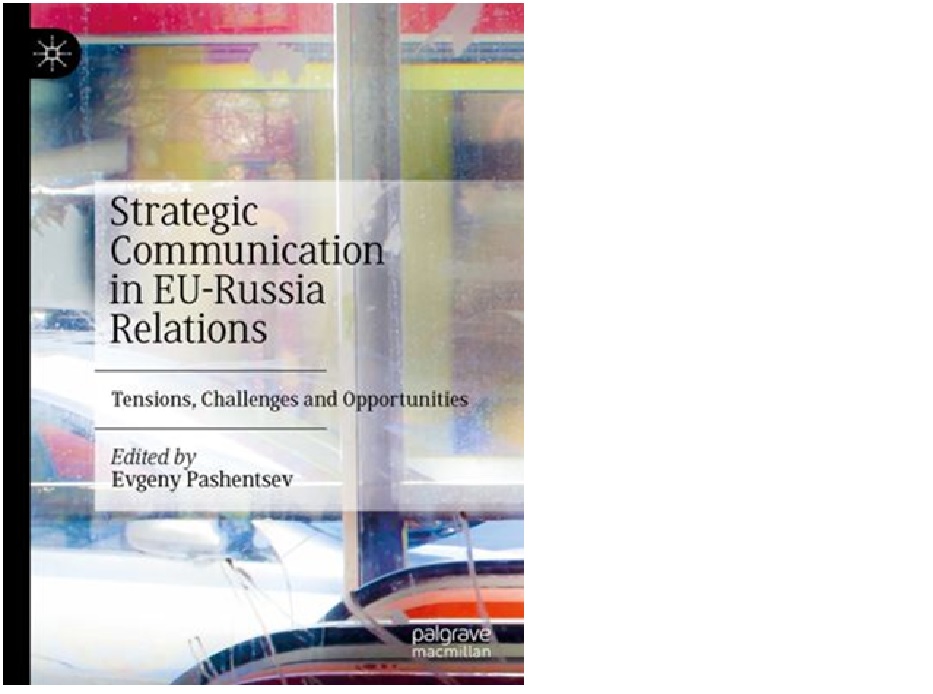
Finally in London Prof. Pashentsev visited his colleagues at London University. London in general gives a lot of opportunities to organize efficient multidisciplinary studies on AI from technical aspects to social consequences, its benefits and risks.
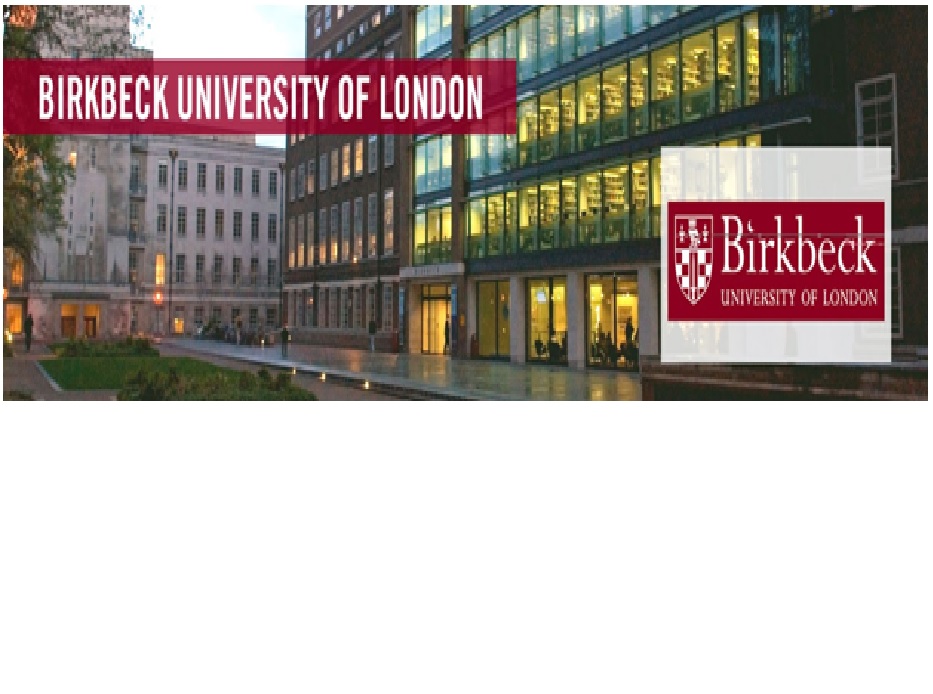
More photos on ECIAIR – Oxford 2019 can be found here: https://photos.google.com/share/AF1QipMBzv2XW5l6NwzMeAaaeA32-lee-qUj62We25ek9PbFcHGifD3mx03Hd4aWA-5Xlg?key=SE0tOVI3N0V3a004SlF6M1cwSk5JMEVwenRFeWhB .
[1] Griffiths P. ECIAIR Preface// Proceedings of the European Conference on the Impact of AI and Robotics 31 October -1 November 2019 at EM-Normandie Business School, Oxford. Ed. by P. Griffiths and M. Nowshade Kabir. Reading, UK, 2019. P. V.
[2] Future Life//University of Glasgow. URL: https://www.gla.ac.uk/research/beacons/futurelife/reverseengineeringthebrain/
[3] Center for Russian, Central and East European Studies. URL:https://www.gla.ac.uk/research/az/crcees/aboutus/#/aboutcrcees
[4]What are the best ten universities in the UK for a PhD in artificial intelligence or machine learning?//Quora. URL: https://www.quora.com/What-are-the-best-ten-universities-in-the-UK-for-a-PhD-in-artificial-intelligence-or-machine-learning



 0
0 11879 Views
11879 Views 3 December 2019
3 December 2019 Darya Bazarkina, Kaleria Kramar
Darya Bazarkina, Kaleria Kramar 